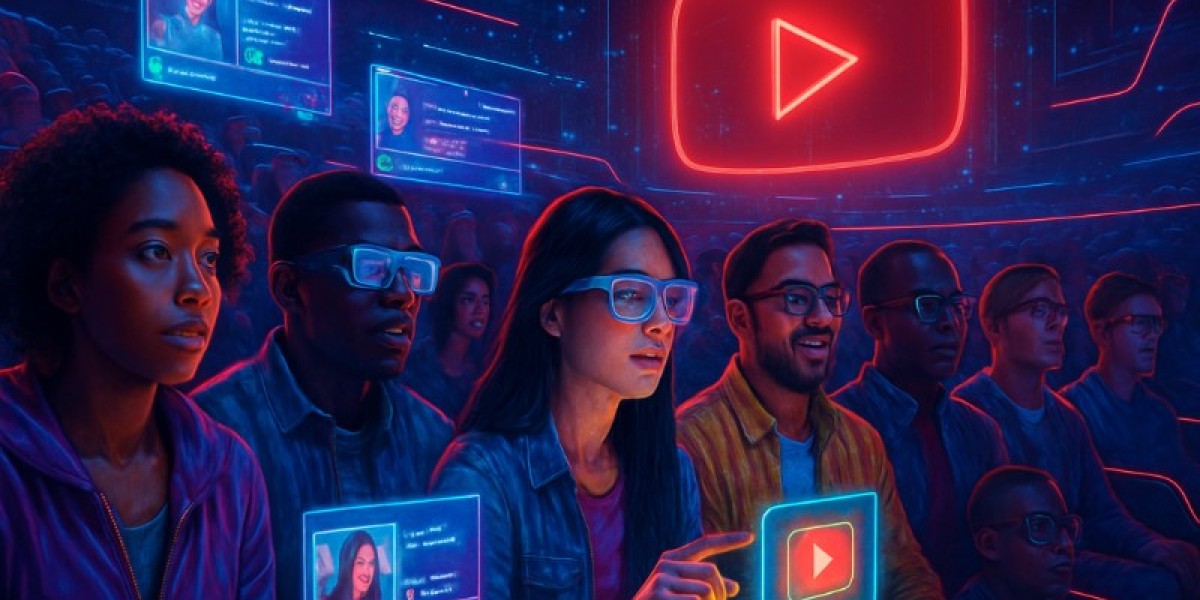The year 2025 is shaping up to be a defining moment for the technology world. From artificial intelligence transforming daily routines to smart devices optimizing how we live and work, innovation continues to move forward. Tech consumers are seeing advancements not just in functionality but also in sustainability. Just as new products in lifestyle industries like california cherry vape keep evolving for convenience and flavor, tech devices are doing the same for function and eco-friendliness. With increasing demand for energy-efficient tools, the tech landscape is becoming more intelligent, connected, and environmentally aware.

The Rise of Everyday AI
Artificial Intelligence (AI) is no longer limited to enterprise use or high-end computing. It is now integrated into everyday applications that people rely on at work and home. AI's influence in 2025 includes:
Personal Assistants: AI-driven apps now help schedule meetings, set reminders, and even offer basic emotional support by recognizing user moods.
Customer Service Automation: Chatbots and virtual agents handle queries round-the-clock across sectors like banking, e-commerce, and healthcare.
Healthcare Diagnostics: Machine learning tools now support diagnosis by analyzing X-rays, MRIs, and genetic data faster than traditional methods.
Education Tools: Personalized learning paths for students are created using AI algorithms to match pace and understanding level.
Content Creation: AI platforms assist with creating written, visual, and audio content, speeding up tasks for marketers and creators alike.
With AI's rapid growth, there’s a push to ensure its usage remains ethical, secure, and transparent. Tech companies are building in safeguards, like explainable AI systems and secure data sharing protocols, to address these concerns without slowing innovation.
Smarter Devices with Real-World Impact
Smartphones and laptops remain essential, but the evolution of smart devices has expanded into home appliances, wearables, and even vehicles. Smarter technology in 2025 emphasizes connectivity, automation, and personalized experience.
Smart Homes: Devices like thermostats, lights, locks, and kitchen appliances can now learn user habits and automate settings for comfort and energy efficiency.
Wearable Health Devices: Fitness bands and smartwatches monitor heart rate, sleep cycles, and even early signs of illness, sharing data securely with medical professionals.
Connected Cars: Vehicles equipped with smart sensors offer lane detection, collision alerts, and voice-based route adjustments while reducing fuel consumption.
Work-from-Anywhere Tools: Portable monitors, noise-canceling earbuds, and wireless charging stations support remote workers with efficient, minimal setups.
The key trend is interoperability—how devices work seamlessly together using platforms like Matter, Apple HomeKit, or Google Home, allowing users to centralize control through a single app or voice command.
Green Innovation and Sustainable Tech
Environmental concerns continue to drive innovation. Tech companies in 2025 are shifting focus toward sustainability in materials, energy usage, and manufacturing processes. Some notable trends include:
Recycled Materials: Many companies are now using recycled aluminum, plastics, and rare earth elements in smartphones, laptops, and chargers.
Energy-Efficient Hardware: Devices are designed to consume less power, with low-voltage processors and adaptive brightness features that cut down energy use.
Cloud & Data Centers: Cloud providers are committing to 100% renewable energy use for their global data centers, optimizing cooling systems and server density.
Modular Tech: Laptops and smartphones with modular parts make repairs easier and reduce electronic waste, supporting longer life cycles for devices.
Green Certifications: Product labels now show carbon emissions, energy usage stats, and recyclability info, helping consumers make informed decisions.
Governments and international agencies are also offering incentives and subsidies to companies that meet strict environmental standards, pushing the entire industry toward cleaner practices.
Everyday Convenience, Powered by Innovation
Technology is also becoming more personalized and accessible in unexpected areas. Smart fridges track expiry dates. Robotic vacuum cleaners clean your home when you’re out. Even public transportation is upgrading with tech-enabled ticketing, route optimization, and real-time safety updates.
A good comparison is how industries like vaping have adopted similar innovation strategies. For instance, devices like lost thc 6000 reflect modern expectations for portability, flavor customization, and long battery life—qualities also demanded in today's tech gear. It’s all about efficiency, responsiveness, and adapting to personal needs.
What’s Ahead: Seamless Integration
Looking beyond 2025, the next big leap involves even tighter integration between AI, devices, and daily life. Think wearable glasses with augmented reality for real-time information, voice-only control over all gadgets, and homes that manage energy, groceries, and safety without manual input.
Here’s what this may look like:
Smarter Cities: AI traffic systems that optimize road signals, waste management, and energy grids.
Digital Identity & Privacy Tools: Individuals will use decentralized tech to manage personal data access across websites and services.
AI Collaboration Tools: Businesses will deploy AI co-pilots that support brainstorming, decision-making, and real-time analytics during meetings.
In this future, devices will work quietly in the background, serving users without needing much direction. Trust and security will remain at the forefront as people hand off more control to intelligent systems.
Wrapping Up
The tech ecosystem in 2025 focuses on three core areas: smarter everyday tools, environmental sustainability, and the deep integration of AI. Whether you’re working, commuting, or relaxing, technology is simplifying tasks and enhancing life quality without being intrusive. Just like a thoughtfully designed, night crawler flavor offers a clean experience tailored to personal taste, smart devices today aim to offer seamless, efficient, and responsible solutions.
We’re not just watching the future unfold we’re interacting with it, customizing it, and benefiting from it in real time.





